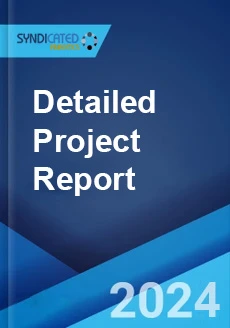
Nanoparticles Instrumentation Market: Global Industry Analysis, Market Size, Share, Trends, Application Analysis, Growth and Forecast, 2022-2027
“Nanoparticles Instrumentation Market: Global Industry Analysis, Market Size, Share, Trends, Application Analysis, Growth and Forecast, 2022-2027” provides a deep and thorough evaluation of the nanoparticles instrumentation by application (pharmaceutical, healthcare, and others); by technology (microscopy, flow cytometry, ultracentrifuge, and others); and by geography (North America, Europe, Asia-Pacific, Latin topical America and Middle East & Africa). Nanoparticles are ultrafine particles that are used in the manufacturing of polymers, batteries and capacitors, nanoceramics, and light-emitting diodes (LEDs). Nanoparticles instrumentation refers to laboratory equipment that is used to track, observe and analyze the characteristics of nanoparticles. Some of the commonly utilized instruments include microscopes, fabrication systems, probes, and advanced software.
The global market is primarily driven by significant research and development (R&D) activities conducted in the field of life sciences. In addition to this, increasing investments by public and private firms of numerous countries in R&D and the growing applications of nanoparticles in food science are providing an impetus to the market growth further.
Beginning with a global overview, the report explores the dynamics that have a strong influence on the nanoparticles instrumentation and can also impact its future growth. Taking 2021 as the base year, the report covers the historical market scenarios from 2016-2021 and provides forecasts till 2027. This includes the study of value and volume trends and pricing history. Growth-inducing factors, market restraints, and recent developments have also been analyzed in the report in order to provide deeper knowledge about the industry. On a regional basis, the report examines the nanoparticles instrumentation market in North America, Europe, Asia-Pacific, Latin America, and Middle East & Africa. For each of these regions, the report studies the nanoparticles instrumentation market in detail for the latest trends, outlook, and opportunities.
Segmentation by Application:
- Pharmaceutical
- Healthcare
- Others
Segmentation by Technology:
- Microscopy
- Flow Cytometry
- Ultracentrifuge
- Others
Segmentation by Region:
- Asia-Pacific
- Europe
- Latin America
- North America
- Middle East & Africa
Competitive Landscape:
- Agilent
- Backman Coulter
- Bruker
- HORIBA
- TSI
The price margins for the products along with the various success and risk factors for manufacturers have also been covered in the report. Moreover, in order to determine market attractiveness, the report analyses the nanoparticles instrumentation industry along with the parameters of porter’s five forces model. This model examines the degree of competition in the nanoparticles instrumentation industry by analyzing the threat posed by new entrants and substitutes, and the bargaining power of suppliers and buyers. Swot analysis of the market has also been presented in the report which highlights the strengths, weaknesses, opportunities, and threats pertaining to the nanoparticles instrumentation industry. Furthermore, the value chain analysis of the nanoparticles instrumentation industry has also been covered in the report. This comprises all the activities in the value chain, such as the procurement of various raw materials, manufacturing and sales of the products, and their distribution.
Highlights of The Nanoparticles Instrumentation Market
- Historical and current scenario
- Trends and developments
- Impact of COVID-19
- Market forecast
- Price analysis and forecast
- Porter’s five forces analysis
- SWOT analysis
- Value chain analysis
The report is a result of exhaustive primary and secondary research undertaken by analysts having years of experience in the nanoparticles instrumentation industry. All the qualitative and quantitative aspects of the industry have been covered and the collected data has been analyzed and presented in the form of easily comprehensible charts, graphs, and tables.
Purchase Options
Ask For Customization
Personalize this research
Triangulate with your own data
Get data as per your format and definition
Gain a deeper dive on a specific application, geography, customer or competitor
Any level of personalization
Get in Touch
Call us on
US: +1-213-316-7435
Uk: +44-20-8040-3201
Drop us an email at
sales@syndicatedanalytics.com